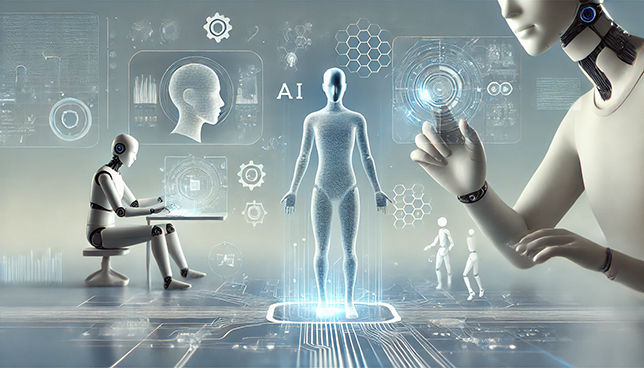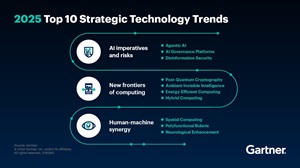
Agentic AI Named Top Tech Trend for 2025
Agentic AI will be the top tech trend for 2025, according to research firm Gartner. The term describes autonomous machine “agents” that move beyond query-and-response generative chatbots to do enterprise-related tasks without human guidance.

Of course, the idea of AI agents doing things on their own conjures up fears of HAL 9000 and Terminator, for just two movie examples, and Gartner noted challenges in the space, advising that autonomous AI “Requires robust guardrails to ensure alignment with providers’ and users’ intentions,” which could conceivably include not destroying humanity.
More realistic challenges that the firm has listed elsewhere include:
- Agentic AI proliferating without governance or tracking;
- Agentic AI making decisions that are not trustworthy;
- Agentic AI relying on low-quality data;
- Employee resistance; and
- Agentic-AI-driven cyberattacks enabling “smart malware.”
The business benefit, meanwhile, is: “a virtual workforce of agents to assist, offload and augment the work of humans or traditional applications.”
The report follows moves by cloud giants Microsoft and Google in the field. It lists common enterprise use cases for agentic AI:
- Self-driving cars: These vehicles navigate roads, make driving decisions, and avoid obstacles without human intervention.
- Robotic Process Automation (RPA): Autonomous software agents can handle routine business processes, such as data entry or email responses.
- Virtual Assistants: AI-driven personal assistants like Siri or Alexa execute commands, answer questions, and interact with users autonomously.
- AI in Video Games: Non-playable characters (NPCs) that adapt to player behavior, learning and modifying their tactics over time.
In fact, Gartner predicts that within four years, at least 15% of day-to-day work decisions will be made autonomously through agentic AI, up from basically 0% this year.
Those stats are fleshed out in the firm’s What Is Agentic AI guidance: “Today’s AI models perform tasks such as generating text, but these are ‘prompted’ — the AI isn’t acting by itself. That is about to change with agentic AI, or AI with agency. By 2028, 33% of enterprise software applications will include agentic AI, up from less than 1% in 2024, enabling 15% of day-to-day work decisions to be made autonomously.”
Tom Coshow, senior director analyst, weighed in: “Organizations have long wanted to promote high-performing teams, improve cross-functional collaboration and coordinate issues across team networks. Agentic AI has the potential to perform as a highly competent teammate by providing insights from derivative events that are often not visible to human teammates.”
While the above enterprise use cases were taken from general industry guidance, Gartner supplied its own for this report:
- Empowering workers to develop and manage more complicated, technical projects — whether microautomations or larger projects — through natural language;
- Automating customer experiences by using data analysis to make highly calculated decisions at each step; and
- Changing decision making and improving situational awareness in organizations through quicker data analysis and prediction intelligence.



